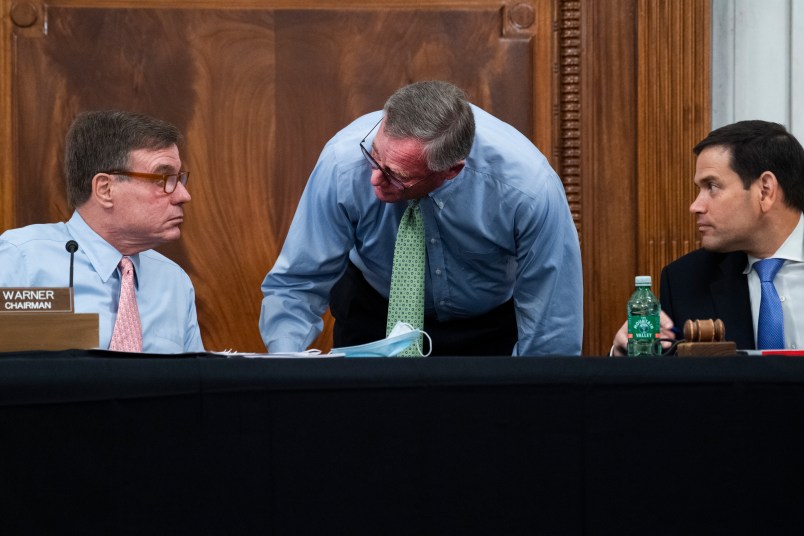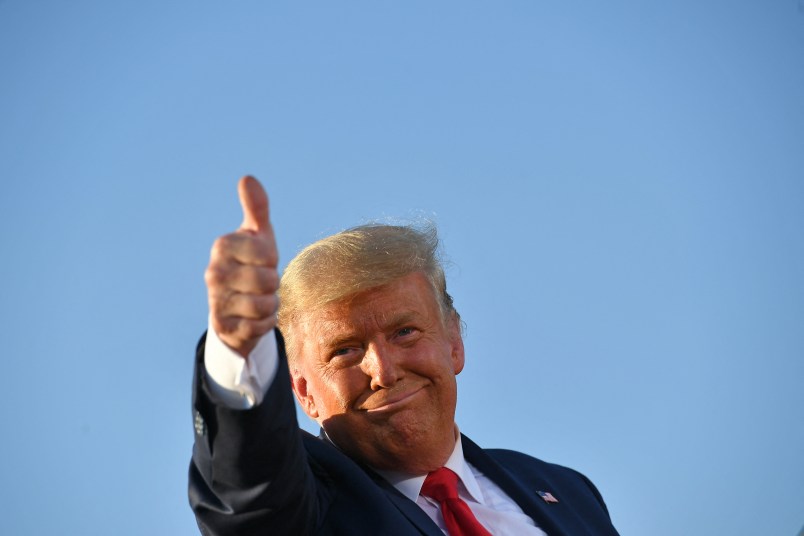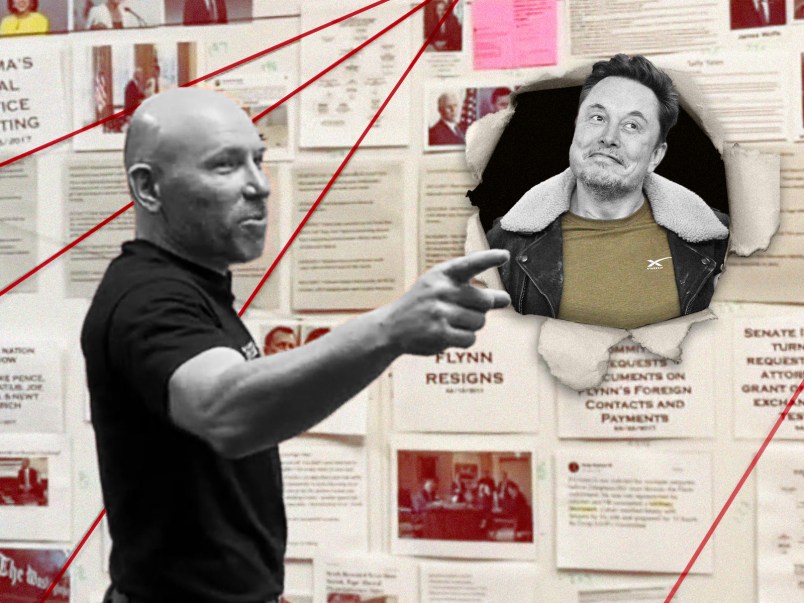After the nearly 1,000 pages of the Senate Intelligence Committee’s report on Russian interference in the 2016 election came to an end, the committee’s Republicans and Democrats offered their views on the evidence surfaced in the years-long investigation.
The report itself was bipartisan — and in many ways exceeded the Mueller report for comprehensiveness and clarity, providing new documentation of contacts between the Trump campaign and Russian intelligence — but the senators’ reactions at the end were, notably, not.
GOP Sounds Victory Cry: ‘No Doubt’ Of ‘No Collusion’
“Volume 5 exhaustively reviews the counterintelligence threats and vulnerabilities to the 2016 election, but never explicitly states the critical fact: the Committee found no evidence that then-candidate Donald Trump or his campaign colluded with the Russian government in its efforts to meddle in the election,” read the response from six Republican senators — Risch (ID), Rubio (FL), Blunt (MO), Cotton (AR), Cornyn (TX) and Sasse (NE).
(The committee’s chair and vice chair did not join the “additional views” section at the end.)
The Trump administration’s foreign policy actions with regard to Russia, the Republicans asserted, “were the result of a foreign policy viewpoint, not Russian influence.”
And, echoing what would later become the foundation of impeachment charges against the President, the Republican senators charged that the Democratic Party, “using a series of arm’s length transactions, hired a foreign citizen to seek out dirt on a political opponent, provided by foreign sources.” They were referring to Christopher Steele, whose opposition research dossier was first published by BuzzFeed News in January 2017.
Volume 5 of the committee’s report, the Republicans concluded, was an “important contribution to the historical record.”
But, of course, we know how this one ends: “After more than three years of investigation by this Committee, we can now say with no doubt, there was no collusion,” the senators wrote.
Dems Say ‘This Is What Collusion Looks Like’
The Democrats’ “additional views” on the report were quite a bit longer and signed by five senators — Heinrich (NM), Feinstein (CA), Wyden (OR), Harris (CA) and Bennet (CO) — who said, on the contrary, that the report’s findings were “what collusion looks like.”
Specifically, they wrote, Trump campaign officials — including the one-time campaign chairman himself, Paul Manafort — “cooperated” with Russian efforts to aid Trump.
Manafort’s offer of internal campaign information to Konstantin Kilimnik — who the report describes as Russian intelligence officer that “may have been connected to the GRU’s hack and leak operation” — constituted concerning evidence that Manafort was “directly connected to the Russian meddling,” the senators asserted.
“These are stubborn facts that cannot be ignored,” they said.
The senators further pointed to the report’s finding that it was “implausible” that George Papadopoulos, having likely learned about the Russian meddling efforts in April 2016, didn’t inform others in the Trump campaign.
And yet “no authorities were notified,” they wrote, and the Trump campaign crafted a strategy around the release of hacked Democratic emails even after the U.S. government determined it to be a Russian effort.
The Dems took a page of their response to cover differences between their probe and former special counsel Robert Mueller’s — namely, that the former was counterintelligence while the later was criminal. They also lacked the authority to issue search warrants and use wiretaps, they pointed out.
“The result is that the American people still do not, and may never, have all the facts necessary to determine the full extent of cooperation between Russia and the Trump campaign in 2016,” they wrote.
What followed, the last section of their response, was labeled “significant ongoing concerns.” Except for an introductory paragraph — noting that “Russia is
actively interfering again in the 2020 U.S. election to assist Donald Trump” — it was redacted.
Wyden Blasts Redactions, Scope
In a subsequent “additional view” statement of his own, Wyden criticized “needless” redactions, including of information related to the 2020 election.
“The American people are not served by aggressive redactions to a narrative describing the continuity of Russian interference before and after the 2016 election,” he wrote. “The American people also deserve better than a double standard in which information related to Russian interference in U.S. elections remains heavily redacted while information that might cast doubt on investigations into that interference is released wholesale.”
Wyden also criticized the committee’s failure to investigate Trump’s financial interests as they related to counterintelligence.
“In short, the Committee did not follow the money,” he wrote.










